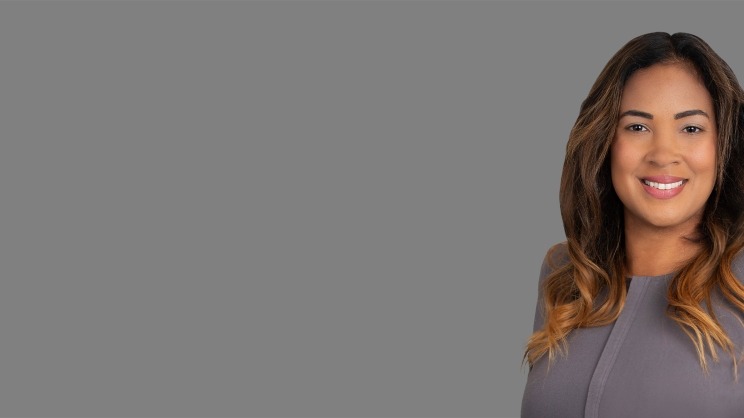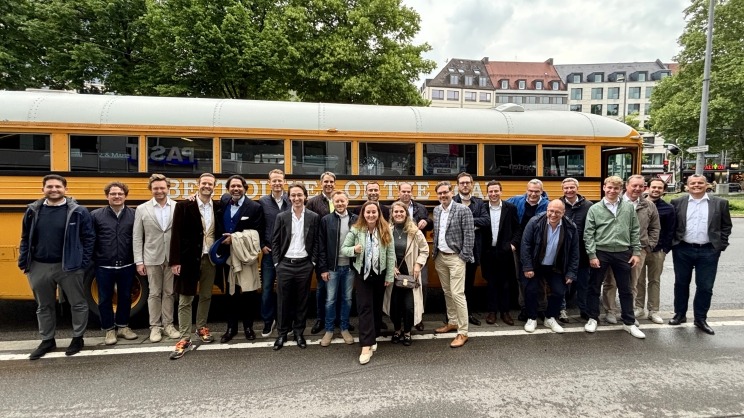Campus Spotlight: Patrick Farmer

Patrick Farmer is an Analyst with Alvarez & Marsal’s (A&M) Restructuring & Turnaround (NACR) practice in Dallas, Texas. He earned a bachelor’s degree from Texas Christian University (TCU).
In the following Q&A, Patrick discusses the valuable skills gained during his college internship, his decision to join A&M based on the dynamic work environment and individual client needs and the challenges and rewards he experienced early on. Patrick emphasizes taking ownership, delivering excellent work and cultivating qualities like attention to detail and emotional intelligence.
What skills or experiences did you gain in college that have been valuable in your career thus far?
I had the opportunity to intern at a wealth management and private equity firm in Fort Worth during my time in college. This experience exposed me to some industry shorthand and terminology not necessarily taught in a classroom. Joining meetings and listening to how their accounting and finance teams talked at different portfolio companies prepared me for the different management teams we work with in our job. Secondly, the internship heavily focused on learning Excel in a way they deemed “the right way”. Spending time learning Excel shortcuts and best practices in the low-stakes environment of an internship allowed me to focus on the more practical components of my job at A&M when I started.
Why did you choose to intern at A&M?
During college, I spent much of my time researching consulting and banking to determine which career path would be best for me. I knew that I liked the financial focus of banking, but I also was intrigued by the idea of new clients and the challenges that consulting provides. I was introduced to A&M by one of the career center advisors at TCU, who thought it was uniquely positioned to provide the best of both worlds. A&M intrigued me because every employee I spoke with seemed to be working on something different from the deals they had done before. A&M wasn’t providing the same cookie-cutter services to their clients—each client had distinct needs—and A&M could adapt its role to fill those needs.
Why did you choose to join A&M full-time?
I interned with A&M’s Restructuring group in the summer of 2020 when Covid-19 had shut down everything. The challenge of being online for the first time in an industry that was so accustomed to traveling weekly was something I was worried might impact my experience. However, throughout the summer, I could see the culture of A&M even more clearly than I would have otherwise. The Managing Directors and Senior Directors I worked with managed to create an environment that was still a lot of fun even though we were all spread throughout the world. Secondly, even as an intern, I could see that the responsibility and exposure that A&M was willing to give to very junior staff was unique. A&M was willing to invest time in me and trust me to apply those learnings to my work with the client.
Which office are you based out of and how would you describe the office culture?
I am in the Dallas office, which has grown rapidly since I started at the firm. There has been an influx of junior employees, creating a solid workplace culture in our office. There is a constant focus on maintaining the culture in our office even though many of us travel each week to the client.
How did you start your career, and what were some of the biggest challenges you faced early on?
One of the biggest challenges I faced at the beginning of my time at A&M was not being staffed for an extended time. Restructuring is a cyclical business, so there are boom years like 2020 and slower years like 2021 (especially the tail end). When I joined the firm, there were very few opportunities to be staffed. This can be daunting to a recent college graduate that is energized and ready to work. As I progressed in my career, I realized that these slow times are the exception, not the rule. I have learned to utilize these periods to network with colleagues and focus on personal development.
How do you stay current with industry trends and developments, and what resources do you rely on for ongoing learning and growth?
A&M provides access to numerous newsletters, subscriptions and research sources, allowing me to stay current on what is happening in the industry. Furthermore, one of the best ways I have found to stay up to date in the industry is to discuss with coworkers what they are working on. For continued learning, leaning on more senior employees in your group is key. Understanding that if a deal is slow or you are not staffed, this is an opportunity to learn from someone else in the firm who might have expertise in an area can be invaluable.
What do you consider to be your biggest accomplishment so far in your career?
My biggest accomplishment to date was being a member of a team that helped to facilitate a multibillion-dollar restructuring. This was my first project out of college and was incredibly rewarding. Being new to the company, I didn’t know what to expect, but operating as an important team member greatly boosted my confidence. I enjoyed seeing how my work contributed to the larger deal.
What advice would you give to university students looking to work in consulting?
When I began considering consulting as a career, one of the things that was repeatedly mentioned to me was that consulting was unpredictable. Having been at A&M for a few years, I can say those people were not wrong. A&M works with clients whose needs shift constantly, and accordingly, we must do so as well. Being ready to travel to a client's site at a moment's notice or having a deal change strategy overnight is the norm. My advice would be that while this can be hard to get used to at first, it is also why the people who work at A&M love it here. You are guaranteed never to be bored doing the same thing week after week here. There is always a new and exciting challenge with each client.
In hindsight, what advice would you give to your college self or other recent graduates about navigating the transition from school to work?
The best advice I received while interning at A&M was to take ownership of everything you do. You will make mistakes as you start your career, and to a certain extent, that is expected. Taking ownership of your work and accountability for any mistakes is important. Additionally, when beginning your career, you will be working on workstreams that are small parts of a larger deal. It is easy to minimize your work and think it is not crucial to the larger deal. Pushing yourself to deliver an excellent work product helps the team succeed and demonstrates that you can be trusted with larger parts of a deal.
What are your career goals and aspirations for the next few years?
My goal over the next few years of my career is to continue to get exposure to different clients, industries and roles within a restructuring process. I want to broaden my skill set to include specific industry expertise and gain a deep understanding of each component of a restructuring transaction.
What are the most important qualities for success in your field, and how do you cultivate those qualities in yourself?
Two qualities are prioritized in the Restructuring group at A&M. The first is attention to detail. Each piece of the work product you produce will be used and relied upon by your supervisor, a lawyer, client, banker, etc. At A&M, interacting directly with these parties early in your career is one of the biggest growth opportunities. But it also makes it crucial to produce a great work product that these parties can rely upon.
Secondly, it helps to be emotionally intelligent. In the Restructuring group, some clients are going through the worst time in their company’s history. It’s important to have the emotional intelligence to understand the impact your work will have on the company’s employees. Additionally, as you spend dozens of hours each week in a conference room with your team, being someone who can lighten the mood or make your team’s life easier is a big value add.
How do you approach networking and building professional relationships, and what tips would you offer to others just starting?
My goal in any conversation with a client, colleague or professional is to find a common interest or “jumping off” point. In my experience, it is important to find a connection of some sort, whether sports, shared hobbies, hometown, etc. Anything that allows you to be memorable as a person rather than just another face in the crowd is valuable. Typically, with each new client, you get to work with a new A&M team as well as a new management team. Each new client presents an opportunity to network both internally and externally. Take advantage of this opportunity and go out of your way to connect with junior client employees and colleagues with whom you work.
What's your favorite hobby or activity outside of work, and how did you get into it?
Outside of work, my favorite activity is anything related to sports, whether playing or watching. I grew up in a family where sports were a huge part of our lives and shaped many of my best memories growing up. My parents like to joke that they will not attend my wedding if it is on a Saturday during college football season.
If you could have any superpower, what would it be and why?
It would be fun to be able to fly. When I was younger, I was convinced that I wanted to be a pilot when I grew up. It would be fun to fulfill this childhood dream and make traveling to client sites much easier.
What are some fun facts about you?
During one of my summers in college, I participated in a cycling trip from Seattle, Washington to Washington, DC to raise money and awareness for people with disabilities. We would bike, on average, about 75 miles a day and then participate in “friendship visits” with local organizations that helped to serve people with disabilities. These visits could be anything from bike races with the local Special Olympics chapter to dance parties with young children in schools like KinderFrogs in Fort Worth. It was an incredible experience that I look back on fondly.




